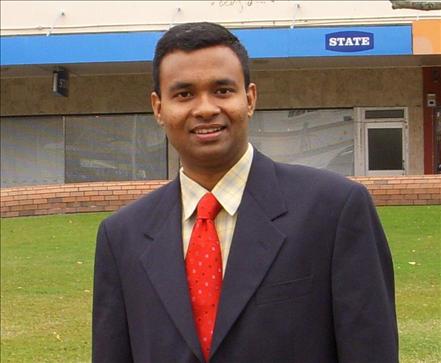 As former TV New Zealand presenter Paul Henry’s remarks were making news in New Zealand, journalists in India proved that they could be also be in “news”.
As former TV New Zealand presenter Paul Henry’s remarks were making news in New Zealand, journalists in India proved that they could be also be in “news”.
The irony in both the cases was that the news presenters were raising serious questions on journalists’ ethics and integrity.
Unlike Mr Henry, who made news for his insensitive remarks on record, Indian journalists were in the news for their dubious “off the record” roles.
Instead of reporting the ‘2G Telecom Spectrum Scam’ rocking India, they were accused of being hand in glove with those allegedly involved in the scam.
Barkha Dutt, Managing Editor of New Delhi Television (NDTV) and Vir Singhvi, Advisor to Hindustan Times, were caught on tape, conversing with Public Relations Consultant Nira Radia who was handling the promotion affairs of two prominent industrialists.
Wrong source
Ms Dutt was not new to controversies as her coverage of the Kargil War between India and Pakistan in 1999 and the November 26, 2008 terrorist attacks in Mumbai were subject to heated debates across the country. They drew criticism from many important personalities, including former Navy Chief (and now India’s High Commissioner to New Zealand) Retired Admiral Suresh Mehta.
Both journalists put up a bold face with well-crafted statements. Ms Dutt defended herself, pleading ‘error of judgment’ in taking Ms Radia as a source.
However, there were no answers on the relationship between the two when the new Government was formed after the May 2009 general elections but it was clear that Ms Radia had an interest in Aandimuthu Raja as Telecommunications Minister (he has since resigned).
It is said that Ms Dutt was ready to act as a power broker between the ruling Congress Party and Dravida Munnetra Kazhagam (DMK), its alliance partner.
Ms Radia allegedly used Ms Dutt’s contacts in the Congress Party to have Mr Raja appointed as a Minister. In this case, the ‘source’ used the journalists and not vice-versa.
Open Magazine Editor Manu Joseph, who exposed the link between the journalists and the PR Consultant, said that the former missed the ‘biggest story of the decade’ by not reporting the vested interests of corporate houses in the formation of the Union Cabinet. Cornered, the journalists and the business tycoon defended their positions, saying that the tapes were illegal and breached norms of privacy.
It is understood that none is interested in journalist or business tycoon’s private life, but as the Comptroller and Auditor General said in his November 10 report, irregularities in allotment of 2G Spectrum had cost taxpayers up to $517 million.
Relationship between journalists and politicians is not new. In fact, many journalists have become successful politicians. But most of them cannot claim the same credibility of people like Sir Winston Churchill, who was a War Correspondent before becoming a Wartime Prime Minister of Britain.
English journalism in India is centered on few blocks in the Delhi studios and journalists have assumed a larger than life image, thanks to television boom.
The Glorious Years
However, things were different before the watershed years of the globalisation.
In the 1980s, reputed journalists such as Arun Shourie and Swaminathan Gurumurthy of the Indian Express and Narasimhan Ram of The Hindu exposed corruption in politics and the evils of crony capitalism. Their reports carried weight, authenticity and wide readership. Doordharshan, although Government owned, was also respected for its unbiased reporting.
The economic reforms of the 1990s encouraged the growth of the private television channels, which were more interested in Television Rating Points (TRP) than in quality reporting and programmes.
With the burgeoning Indian middle-class, the rising English speaking population and higher levels of propensity to spend, news channels witnessed an unprecedented boom. Salaries of television journalists skyrocketed. They became celebrities like film stars but somewhere along the line forgot the norm that they were ‘watchers and not players.
While the Indian media modeled itself on its Western counterpart, it failed to match the latter’s reputation. As Mr Ram mentioned during a debate (on the latest ‘tapes episode) telecast on CNN-IBN News, “The unprofessional attitude of the new age Indian journalists would not have been tolerated in the Cable News Network, British Broadcasting Corporation or the New York Times.”
Indian journalism has aped the Western style without adopting its substance.
This episode has sadly proved that Indian media is not immune to corruption. Further, the Fourth Estate is not a part of the nation building, but plays to the interests of corporatism. This does not augur well for India, which is poised to play a leading role in the 21st century global affairs.
Balaji Chandramohan is Editor of the Asia with World Security Network based in New Delhi. He graduated in Journalism from the University of Waikato two years ago.





